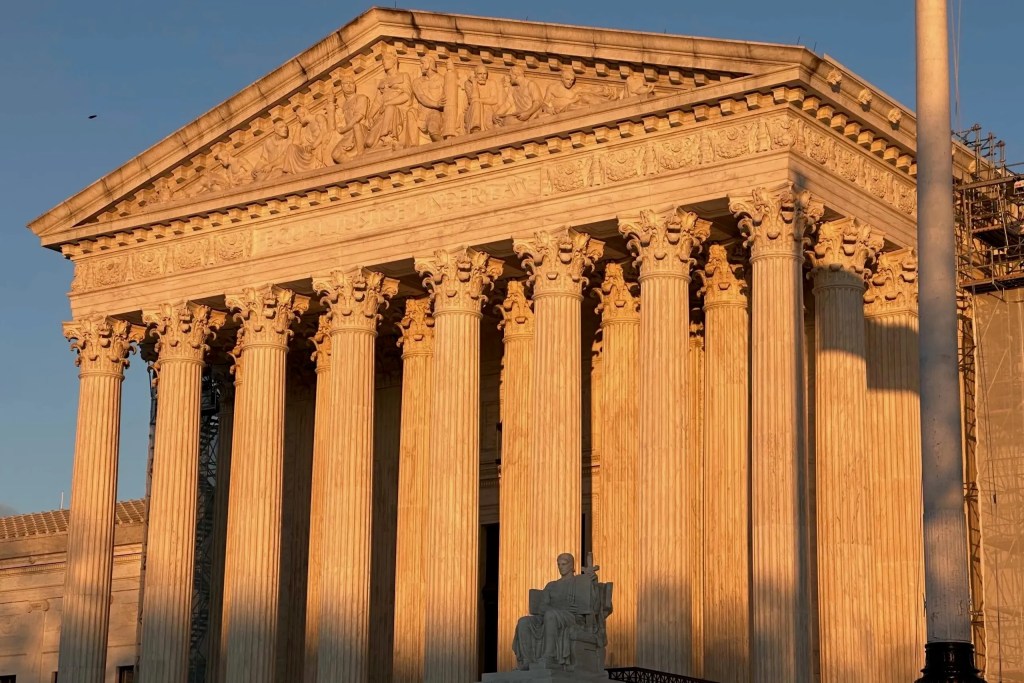Justices to consider constitutionality of tax foreclosure sales
SCOTUStoday for Friday, February 20
More news
Democrats ask Supreme Court not to disrupt New York redistricting dispute
Two separate groups of New York voters and elected officials on Thursday afternoon urged the Supreme Court to leave in place a ruling by a state trial judge in Manhattan that would bar the state from using its existing congressional map in the 2026 elections. Instead, the ruling by Justice Jeffrey Pearlman of the New York Supreme Court – which is a trial court in that state – would require New York to redraw the map on the ground that it diluted the votes of Blacks and Latinos in the only New York City congressional district represented by a Republican. The voters called the request to intervene a “brazen defiance of” the Supreme Court’s rules, while a group of state officials added that granting the request would require the court to improperly intrude on state interests.
Continue ReadingCan courts excuse late removals to federal court?
As many law students learn in their civil procedure course, when a plaintiff files suit in state court asserting a claim over which a federal district court would have jurisdiction, federal law permits the defendant to remove the case to federal court. But the defendant must act quickly: 28 U.S.C. § 1446(b)(1) requires the notice of removal to be filed within 30 days of receiving the complaint or being served with process. The question in Enbridge Energy LP v. Nessel – on which the court will hear argument on Feb. 24 – is whether district courts are authorized to extend (or “equitably toll”) this 30-day deadline for excusable reasons.
Continue ReadingWhat the Justice Department overlooks in its historical argument to end birthright citizenship
Immigration Matters is a recurring series by César Cuauhtémoc García Hernández that analyzes the court’s immigration docket, highlighting emerging legal questions about new policy and enforcement practices.
In my last column, I discussed how the Justice Department – in the battle over birthright citizenship – had selectively interpreted the original meaning of the citizenship clause of the 14th Amendment. But that is not the only hole in the government’s argument – in this column I explore how the DOJ has also overlooked the historical importance of certain key laws enacted by Congress.
Continue ReadingSupreme Court updates recusals process
The Supreme Court on Tuesday revealed that it has put new software in place to “assist in identifying potential conflicts” of interest for the justices. In a press release issued by its Public Information Office, the court announced changes to its rules – which, it explained, are generally “designed to support operation” of that software.
Continue ReadingThe anticipated criminal law decisions and arguments for the rest of this term
ScotusCrim is a recurring series by Rory Little focusing on intersections between the Supreme Court and criminal law.
Today’s column is my busman’s holiday project: providing nerd-like numbers and information focused solely on Supreme Court cases that address criminal law issues.
This is especially relevant given that the court has now posted its calendar for the final argument session of the 2025-26 term, with oral arguments to take place from April 20-29. And the court will also begin issuing more “headline” opinions this coming Friday. Aside from boring civil cases like birthright citizenship or firing a governor of the Federal Reserve 😀, we are awaiting some big criminal law decisions. And some hugely significant criminal law cases still have oral arguments upcoming (there will be three two-week oral argument sessions at the end of February, March, and April).
Continue Reading